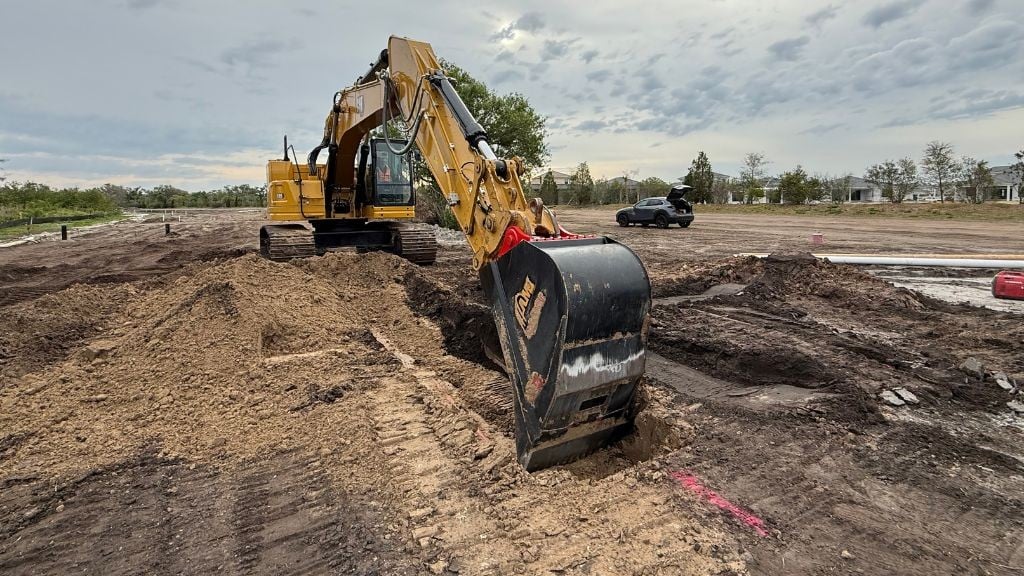6 evolving technologies that will transform your construction site
Kris Lengieza, senior director at Procore, discusses up and coming innovations in the construction industry

As old methodologies and science converge, new technologies improve efficiency, productivity and profits for construction companies as they welcome and embrace innovation, explains Kris Lengieza, senior director at Procore.
The construction industry has been slow to adopt technology. Until about six or seven years ago, technology was reserved for the back office and typically used for HR, accounting, contract writing, tracking change orders, with nothing to drive the information to the people actually doing the work in the field.
That changed because of several key reasons, explains Lengieza. The prevalence of mobile devices and new technologies in people's personal lives and the realization that these could be used out in the field has helped streamline many operations, in addition to younger people coming into the industry with new ideas on how to do things.
A big challenge in construction is collecting structured data to be able to do analytics, Lengieza also notes. Nowadays, big data, cloud computing, labour tracking, project management software, cloud computing, etc., can be used to help understand how projects are progressing, see what projects require immediate attention, identify more efficient ways of doing things and enable faster, better decision making.
Key technologies for the construction industry
According to Lengieza, the following are some of the new technologies evolving for use in the construction industry:
1. Virtual reality (VR) for training
VR training simulations replicate situational experiences that can be difficult, expensive or dangerous to do deliver in real life, he points out. For example, training an apprentice iron worker how to weld is typically done with him standing on the ground.
In real life, that apprentice might have to go up 30 stories, walk out on a beam, receive a piece of steel and weld it, and that is very a different situation, says Lengieza. You don't want to expose an apprentice to that risk and danger without proper training.
VR is also being used for construction machine operating training, he adds. This eliminates the need to transport students to locations and equipment and reduces the chances of damaging very expensive machines.
2. Augmented Reality (AR)
AR involves using a spatial/virtual reality headset that lets the wearer see and interact with digital content at a jobsite by overlaying holograms or 3D models over the real world.
For example, says Lengieza, a person can visualize what the design of the building is supposed to be, right alongside the current progress of the building to detect any problems or issues.
3. Robotic technology
Robotic technology is currently being used to automate processes and increase productivity for such jobs as welding, demolition, drywall hanging, brick laying and masonry assistance, but it is not commonplace, he says. He envisions robotic technology in rover and data collection applications evolving more rapidly in the construction industry.
4. Automation technology
The mining industry is using this technology to have haul trucks respond to calls to the shovel, move into position and haul to dump points, observes Lengieza. Development is happening with backhoes, bulldozers, excavators and other construction vehicles so that they can operate themselves and make construction safer and faster.
5. Machine learning
This is being used to more efficiently – and with greater accuracy - analyze and categorize data project data, which in turn helps boost productivity, increase safety and reduce costs, says Lengieza.
A method of data analysis, machine learning is a process wherein computers, by creating algorithms, learn from previous data without being explicitly programmed.
6. Artificial intelligence (AI)
AI involves layering industry knowledge into machine learning so AI can think like a construction superintendent and, by way of example, make suggestions, he says. However, that is a ways off because there must be enough aggregated data to train AI models and then time has to be invested to evolve those models.
Company info
04-128 1 University Avenue
Toronto, ON
CA, M5J 2P1
Website:
procore.com
Phone number:
(866) 477-6267



